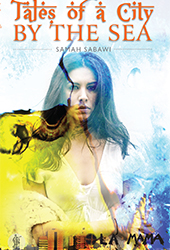RECOMMENDED FOR: Years 10-12
CAST SIZE: 5F, 4M (this play is written for a cast of Palestinian performers)
A PLAY TO: Read, read aloud, study, discuss and draw on the ideas as stimulus for responding and creating devised work.
GENRE: Drama, non-naturalism, epic theatre, poetry, song
THEMES: War, identity, loss, occupation
CURRICULUM LINKS: Drama – Contemporary performance, Theatre Studies – Modern Theatre
SYNOPSIS: Jomana, a Palestinian woman living in a Gaza refugee camp, falls in love with Rami, an American-born Palestinian doctor who has just arrived on one of the first “Free Gaza” boats. Their love is met with a relentless string of challenges. Ultimately, Rami must decide between returning to his comfortable life in Texas and staying in Gaza with Jomana. Choosing to stay means leaving his family and career behind for a life ravaged by war, while leaving means not only losing Jomana but also ignoring the plight of the Palestinians.
Woven from the actual experiences of people living under occupation, Tales of a City by Sea is about what it means to leave home to create a life in more tolerable conditions, and what it means to stay. It is about relationships between parents who have chosen to leave, and children who want to return. It is about how people in diaspora see their connection to home, and how people at home see them. It is a Palestinian story, but more broadly it is a migrant story.
Tales of a City by the Sea is inspired by events the author and her family have experienced during the past several years. Most of the poetry in the play was written during the three-week bombardment of Gaza in 2008/2009.
STAGING: While the story specifically takes place in 2008 during the siege of Gaza, the symbolic staging of the play does not include scenic elements that define place or time. The non-naturalistic set, composed of a set of white sheets on wires, has a makeshift sensibility. Transformations in time and place are indicated by lighting and set changes, operated by the actors as part of the action of the performance. A live singer performs traditional songs acapella in Arabic throughout these changes, punctuating the action while connecting to the audience. The play combines scenes from life with conventions of epic theatre, including direct address, poetry, and the breaking of the fourth wall (staging notes from the script).

